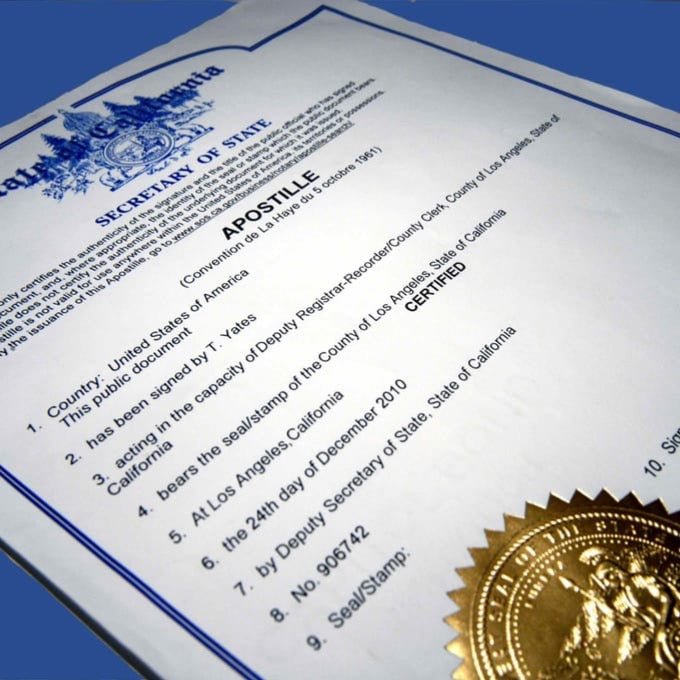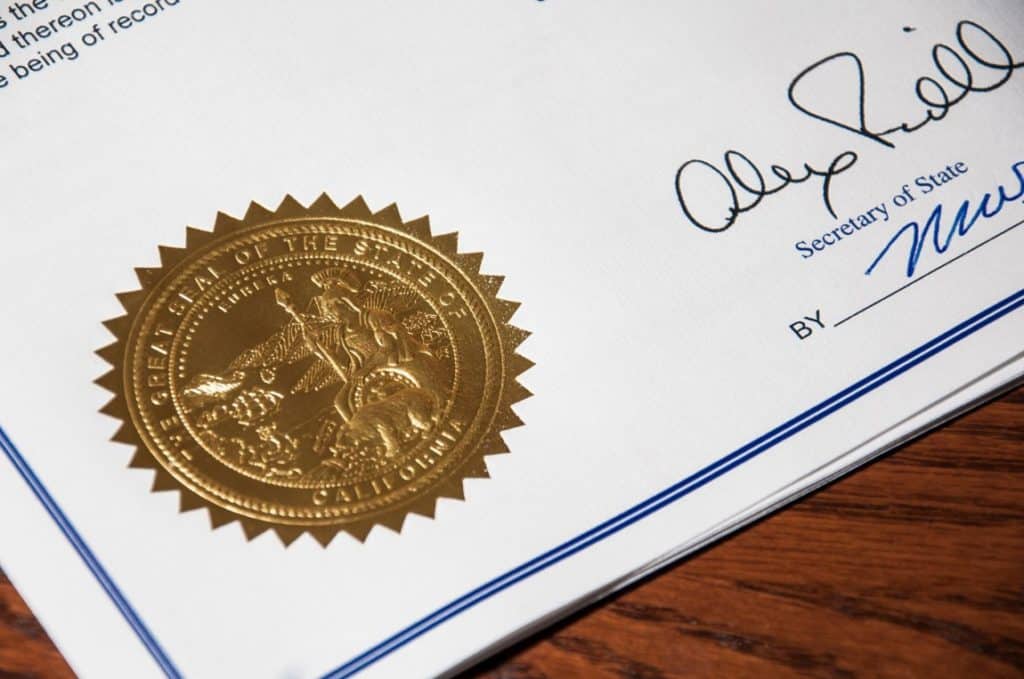Recognizing the Apostille Process: A Comprehensive Overview to International Document Authentication
Browsing the detailed landscape of worldwide record verification can be daunting without a clear understanding of the apostille procedure. What specifically defines an apostille, and why is it so critical for papers destined for Hague Convention nations?
What Is an Apostille?
An apostille is an official qualification that validates the credibility of a paper for use in one more country. This certification, released by a marked authority in the country where the file originated, ensures that the record is identified as valid and genuine in the international sector. The procedure of acquiring an apostille involves numerous actions, including the confirmation of the paper's signatures, seals, and stamps by appropriate governmental bodies.
The apostille works as a globally recognized kind of verification, made possible by the Hague Convention of 1961. This treaty, formally called the Hague Convention Abolishing the Need of Legalisation for Foreign Public Files, systematizes the procedure of document qualification among participant countries. The apostille itself is a standard certificate that contains details information, such as the releasing authority, the native land, and the date of issuance.
It is essential to keep in mind that not all documents are qualified for an apostille. Usually, public documents like copyright, marital relationship licenses, court orders, and academic diplomas qualify for this accreditation. Exclusive files, such as agreements and contracts, might require registration and additional actions to qualify.
Value of Apostille
Understanding what an apostille is establishes the stage for appreciating its value in worldwide dealings. houston tx apostille. An apostille, essentially a kind of accreditation issued by an assigned authority, confirms the credibility of a paper for usage in foreign countries that are notaries to the Hague Apostille Convention. This standardized procedure gets rid of the need for more legalization by embassies or consulates, therefore simplifying international deals
It guarantees the integrity and approval of crucial records-- such as birth certifications, marital relationship licenses, and instructional diplomas-- throughout boundaries. For services, it assists in the smooth conduct of worldwide trade, mergers, and acquisitions by providing a relied on approach of paper confirmation.
In addition, an apostille boosts legal safety and security and compliance. Federal governments and organizations can confidently rely on the credibility of records birthing an apostille, minimizing the risk of scams and misrepresentation.
Files That Need Apostille
When engaging in global deals or legal matters, specific papers frequently require the verification offered by an apostille. This guarantees their acknowledgment and acceptance in countries that are notaries to the Hague Apostille Convention. Commonly, personal files such as birth certifications, marital relationship certificates, and death certificates call for an apostille, specifically when they are used for processes like immigration, marital relationship abroad, or global probate issues.
Educational documents are one more classification often calling for apostilles. Diplomas, records, and academic records typically require this verification for objectives such as pursuing further education, employment, or professional licensing in a foreign country (houston tx apostille). This step ensures that the files are acknowledged as reputable and legitimate
Lawful records, consisting of powers of lawyer, affidavits, and court orders, also commonly necessitate apostilles. Business files such as certificates of incorporation, bylaws, and commercial contracts might need an apostille to help with worldwide trade, establish international branches, or participate in cross-border lawful procedures.
Steps to Obtain an Apostille

Acquiring an apostille involves a multi-step process that guarantees the authenticity and approval of your records in international countries. The preliminary step is identifying which records require an apostille. houston tx have a peek at these guys apostille. Typical files include birth certifications, marital relationship licenses, scholastic transcripts, and corporate files
Once read this determined, the document has to be accredited by the appropriate releasing authority. After accreditation, the document must be submitted to the assigned Competent Authority in the document's nation of beginning.
The submission procedure typically calls for a completed application, the original paper, and a fee. Some jurisdictions might provide the alternative of expedited processing for an extra fee. Upon successful confirmation, the Competent Authority will attach the apostille certification to the document, consequently confirming its authenticity.
Usual Challenges and Solutions
Browsing the apostille procedure can present a number of usual challenges that, if not effectively addressed, may postpone or make complex document authentication. One regular issue is the submission of inaccurate or insufficient documents. Each country has particular demands for the kinds of documents that can be apostilled, and any variance from these can cause denial. Guaranteeing that all papers are exact and full prior to submission is important.
An additional usual challenge is comprehending the varied handling times. Handling times can differ considerably in between nations and also in between different regions within the same country. It is necessary to represent these variations when planning the go to this website apostille process to stay clear of unanticipated hold-ups.
Furthermore, language barriers can position significant barriers. Records in an international language commonly need certified translations, and any errors in translation can cause additional problems. Engaging a specialist translation solution can reduce this threat.

Final Thought
Mastering the apostille procedure dramatically improves the effectiveness of international record verification. By comprehending the requirement of identifying and licensing called for files, and navigating the entry to the Competent Authority, the process comes to be a lot more workable. Recognition of typical challenges, such as insufficient submissions and language barriers, additionally aids in protecting against prospective delays. Making sure files are effectively apostilled facilitates their approval in Hague Convention signatory countries, thereby sustaining smooth worldwide lawful and administrative treatments.